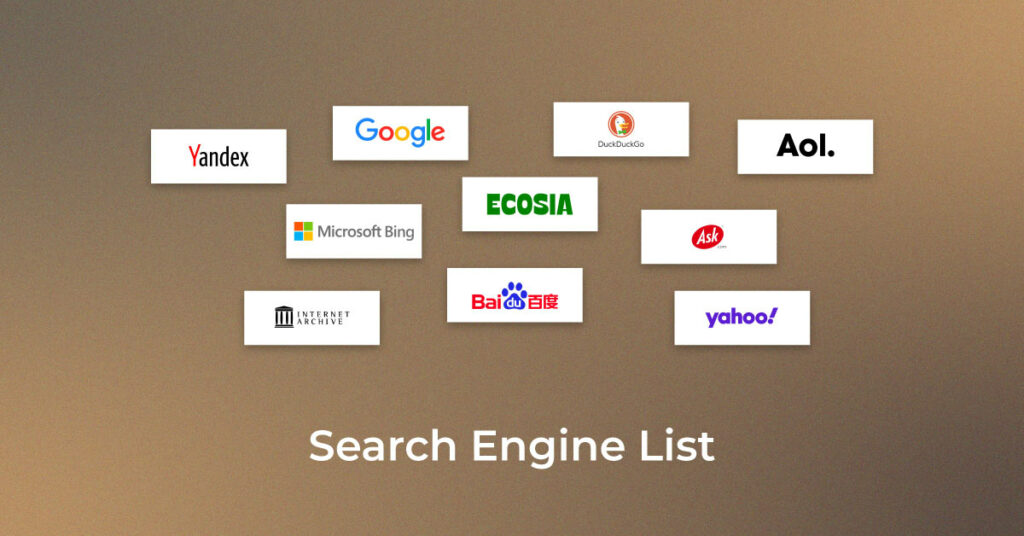Overview
A search engine is a software system designed to perform web searches, enabling users to locate information on the World Wide Web by entering specific keywords or phrases. These systems index vast amounts of web content and return relevant results based on complex algorithms.
History
Early Developments
The concept of search engines predates the World Wide Web. In 1990, Alan Emtage, a student at McGill University in Montreal, developed Archie, the first tool for indexing FTP archives, allowing users to find specific files. As the web expanded, the need for more sophisticated search tools became evident.
1990s: The Rise of Web Search Engines
In the early 1990s, several search engines emerged:
- –
WebCrawler (1994): Allowed users to search for any word in any webpage, setting a new standard for search capabilities.
- –
Lycos (1994): Developed at Carnegie Mellon University, it became a major commercial endeavor.
- –
AltaVista (1995): Created by researchers at Digital Equipment Corporation, it introduced a fast, multi-threaded crawler and efficient back-end search, handling millions of queries daily.
- –
Yahoo! Search (1995): Initially a directory of websites, it added a search function, becoming one of the most popular ways to find web pages.
2000s: Dominance of Google
Founded in 1998 by Larry Page and Sergey Brin, Google revolutionized search with its PageRank algorithm, which assessed the importance of web pages based on the number and quality of links. By the early 2000s, Google became the dominant search engine, a position it maintains today.
Technology
Search engines operate through several key processes:
Web Crawling
Automated programs called crawlers or spiders traverse the web, visiting pages and following links to discover new content. They collect data from webpages, which is then processed and indexed.
Indexing
The collected data is organized into an index, a massive database that allows for rapid retrieval of information. This index includes details about the content and metadata of each page.
Ranking Algorithms
When a user submits a query, the search engine retrieves relevant pages from the index and ranks them based on various factors, such as keyword relevance, site authority, and user engagement metrics. Google's PageRank, for example, evaluates the quality and quantity of links to a page to determine its importance.
Market Share
As of May 2025, according to StatCounter, Google holds approximately 89–90% of the worldwide search market share. Competitors include:
- –
Bing: Approximately 4% market share.
- –
Yandex: Around 2.5% market share.
- –
Yahoo!: About 1.3% market share.
- –
DuckDuckGo: Approximately 0.8% market share.
- –
Baidu: Around 0.7% market share.
Notably, this marks the first time in over a decade that Google's share has fallen below the 90% threshold.
Search Engine Bias
Search engines aim to provide relevant and unbiased results; however, various biases can influence their outputs:
- –
Economic Bias: Paid advertisements and sponsored content can affect result rankings.
- –
Political Bias: Compliance with local laws may lead to the removal or suppression of certain content.
- –
Social Bias: Algorithms may favor popular viewpoints, potentially marginalizing minority perspectives.
Users should be aware of these biases and critically evaluate search results.
Future Trends
The future of search engines involves advancements in artificial intelligence and machine learning, aiming to provide more personalized and context-aware results. Voice search and visual search technologies are also evolving, offering users new ways to interact with information.
Notable Search Engines
- –
Google: The most widely used search engine globally, known for its comprehensive indexing and sophisticated algorithms.
- –
Bing: Microsoft's search engine, offering integration with other Microsoft services.
- –
Baidu: The leading search engine in China, providing services tailored to the Chinese language and culture.
- –
Yandex: Russia's primary search engine, offering a range of services beyond search.
- –
DuckDuckGo: Focuses on user privacy, not tracking search histories or personal information.
Conclusion
Search engines have become integral to navigating the vast expanse of the internet, evolving from simple directories to complex systems capable of understanding and predicting user intent. As technology advances, search engines will continue to adapt, offering more personalized and efficient ways to access information.
